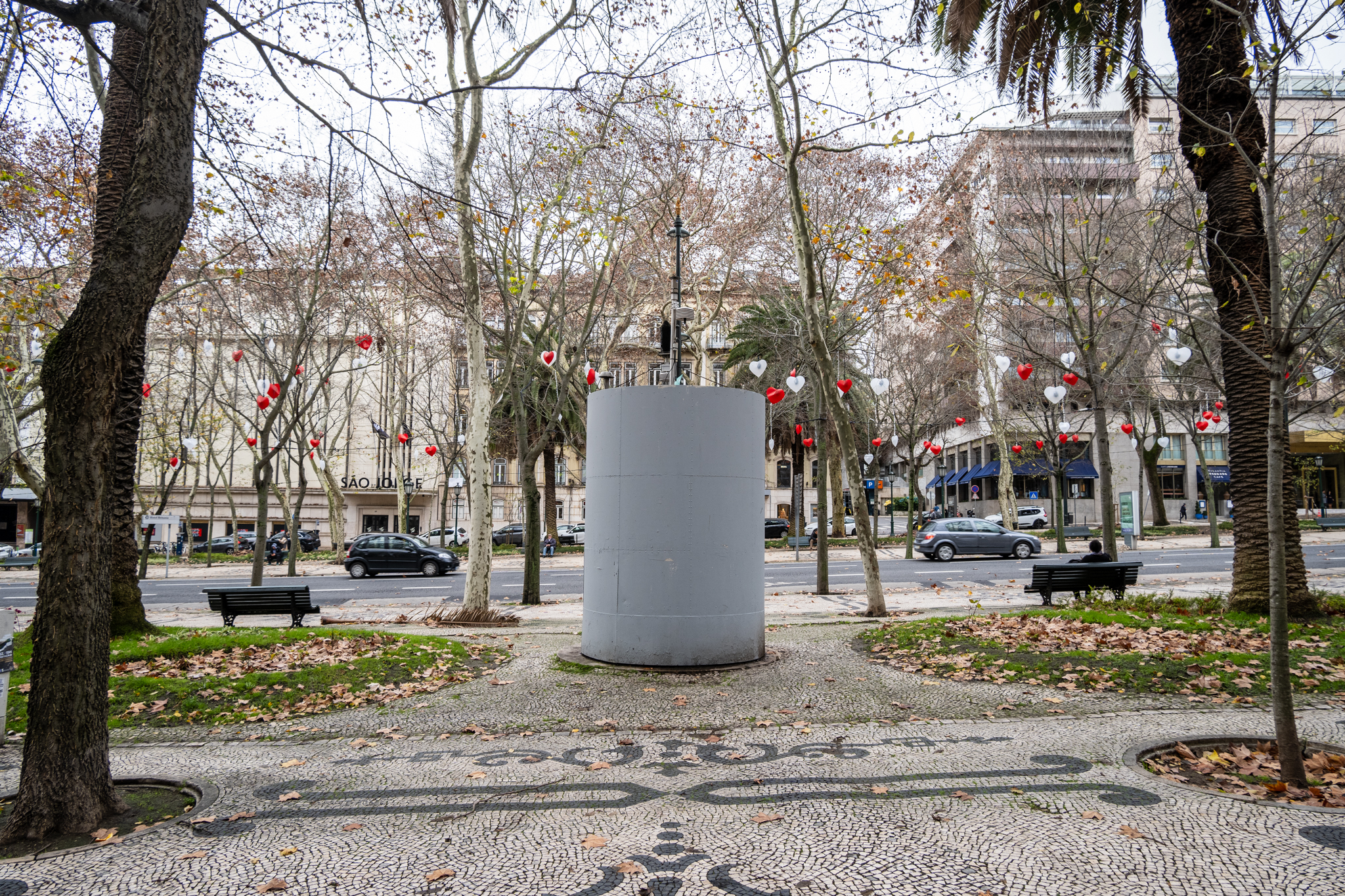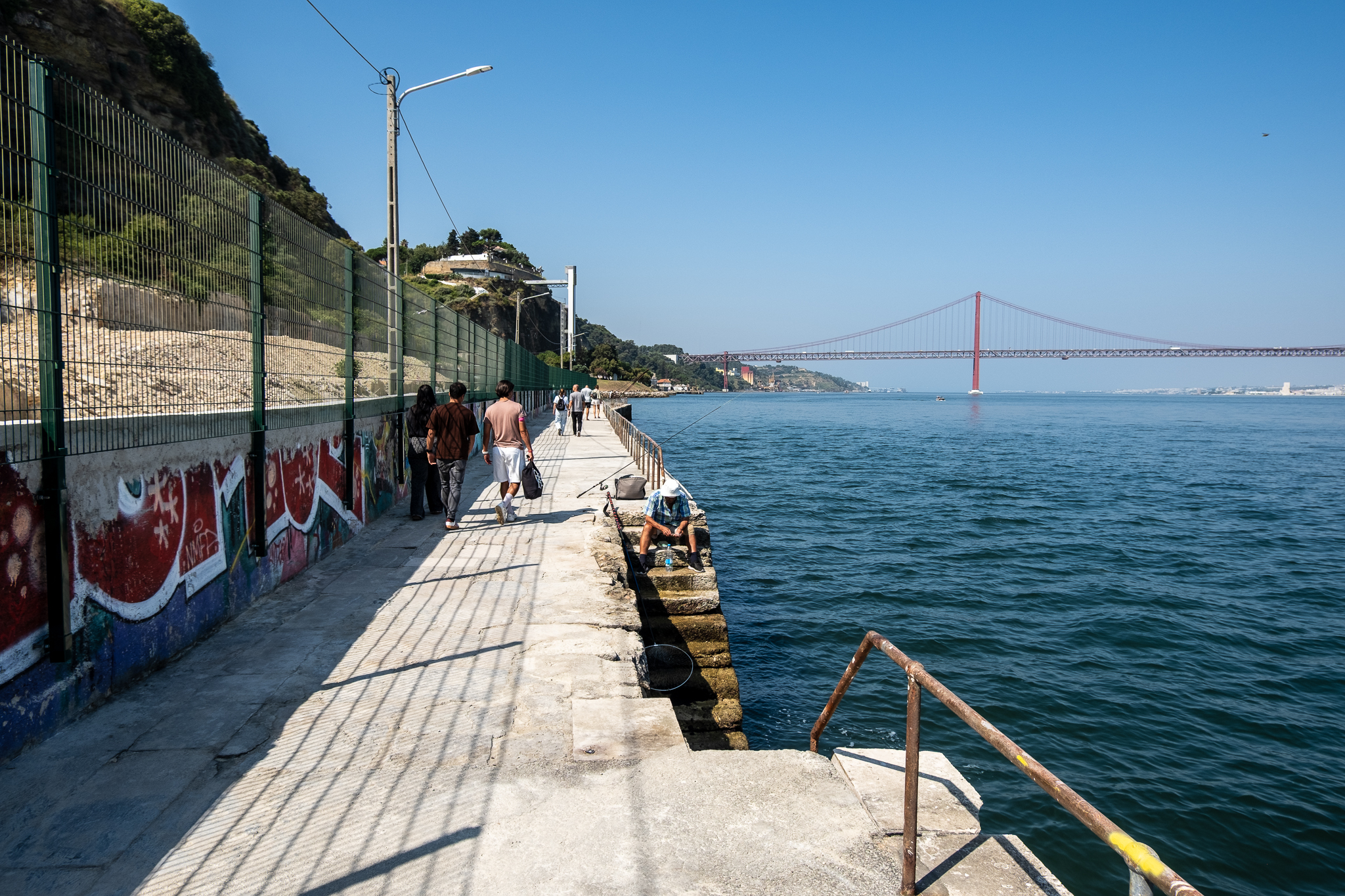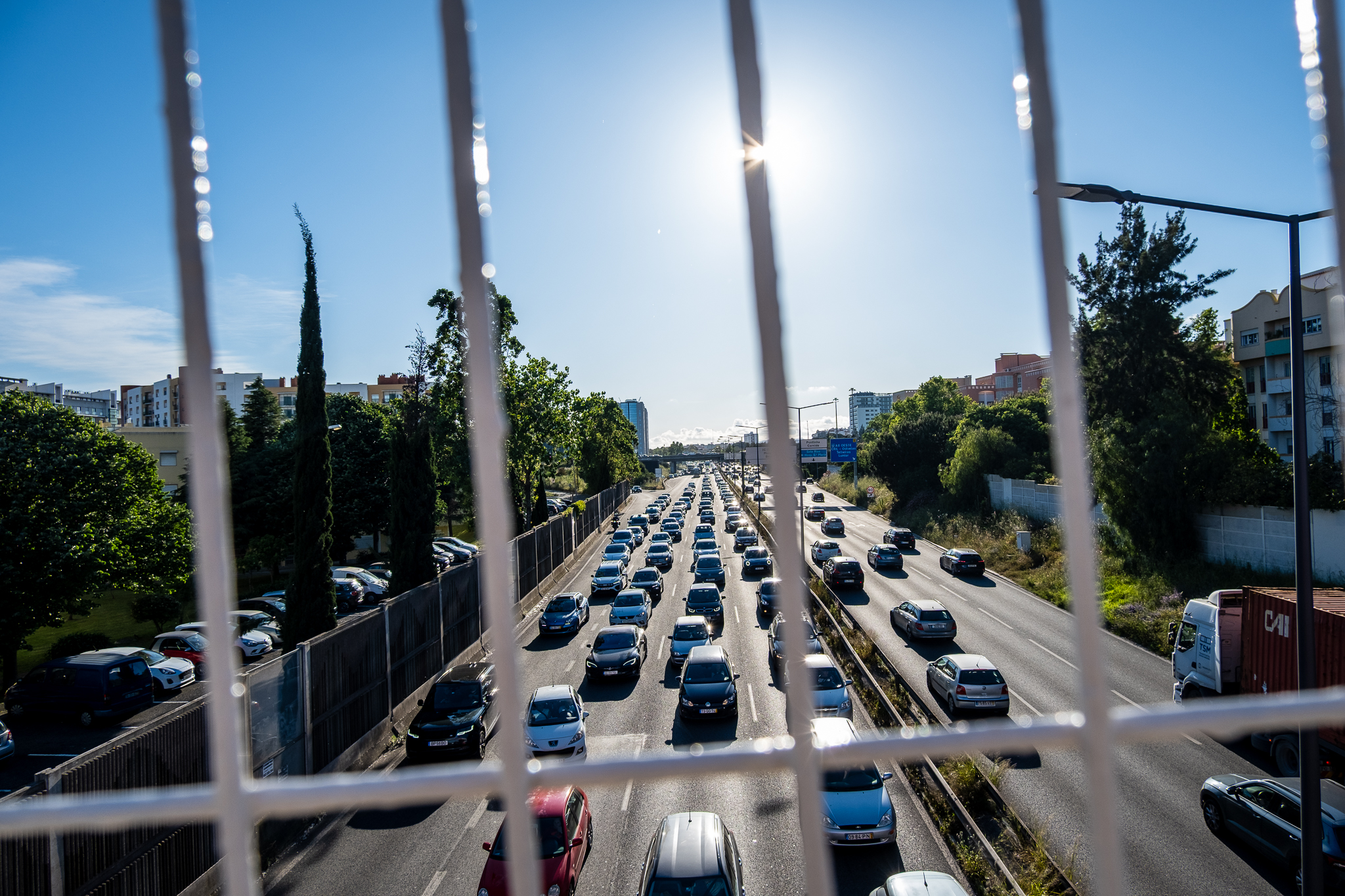In 2023, pollution on Avenida da Liberdade increased again and was above the legal limits, while also remaining well above what is recommended by the World Health Organization. The ZERO association is calling for urgent action.

The environmental association ZERO carried out an analysis of the provisional data for 2023 concentrations of nitrogen dioxide (NO2) and inhalable particles (PM10) at the Avenida da Liberdade monitoring station and warns: the recurring problem of exceeding the limit value of nitrogen dioxide is maintained. The PM10 on Lisbon's iconic avenue are within the legal limits, although much higher than stipulated by the World Health Organization (WHO), points out ZERO.
"Lisbon's poor air quality is nothing new"ZERO said in a statement. "During 2023, the situation in Avenida da Liberdade worsened compared to the previous yearafter circumstantial improvements in 2020 and 2021 as a result of reduced traffic due to the Covid-19 pandemic." Preliminary figures for 2023 indicate a annual average of 46.25 μg/m³, exceeding by about 16% the annual limit value of 40 μg/m³established by Decree-Law no. 102/2010 and the European Union's Ambient Air Quality Directive (Directive 2008/50/EC). If we compare this with the value recommended by the WHO, this value is more than four times what is recommended (up to 10 μg/m³).
The data analyzed by ZERO is still provisional and will be validated by the Lisbon and Tagus Valley Regional Coordination and Development Commission (CCDR-LVT) as soon as possible, will be published here. "Once this data has been validated, the ZERO will once again report the station's non-compliance to the European Unionwhich has been recurring and continuous since 2010 (except in 2020 and 2021)"says the environmental association, pointing out that "These multiple non-compliances, as well as the lack of action and the absence of adequate measures to resolve the problem, led Portugal to be accused and condemned by the European Court of Justice (case C-220/22) in June last year".
According to the ZERO press release, high concentrations of nitrogen dioxide (NO2) have negative effects on health, "from the development of respiratory problems, such as asthma and respiratory infections, as well as heart disease, coronary heart disease, stroke, diabetes and lung cancer". The European Environment Agency estimates that 54,000 people in Europe died prematurely from this pollutant in 2018 alone.
Delayed solutions
The European Directive on "Ambient Air Quality" (EAAQD) establishes that, for areas with non-compliance problems, it is mandatory to draw up Air Quality Improvement Plans and the respective Implementation Program. Between 2011 and 2014, there were several instances of non-compliance with the NO2 and PM10. As a result, the Ordinance no. 116-A/2019The Lisbon and Tagus Valley Region Air Quality Improvement Plan for these pollutants in the agglomerations of the Lisbon metropolitan area, drawn up by the CCDR-LVT. In accordance with national legislation, these plans must form the basis for drawing up the respective implementation programs. These programs must include the actions to be carried out, their timetable, as well as the identification of the entities responsible for their implementation and the indicators for assessing their effectiveness. "However, almost five years after the plan was drawn up, its implementation program still does not exist“, points to ZERO.
The association also states that "the third and final phase of the Reduced Emissions Zone (REZ) in Lisbon completes this month nine years since its implementation and the results are nowhere to be seen“where "since 2015 this area has remained unchanged, with access rules based on outdated and obsolete emission standards". In the case of Lisbon's narrower ZER zone, which covers Avenida da Liberdade, vehicles from the Euro 3 standard (cars after 2000) are prohibited, and in the case of the wider area, vehicles from the Euro 2 standard (i.e. cars after 1996). For ZERO, the "constant failures to comply with legal values demonstrate their practically null effects, the outdatedness of the rules applied, and the lack of regular monitoring“.

At the beginning of 2020, the Lisbon City Council, then led by Fernando Medina, had announced the implementation of an ambitious ZER between Avenida da Liberdade, Baixa and Chiado (ZER ABC) - a proposal that was postponed until the following year. Medina lost the elections, Moedas won, and the ZER ABC was postponed. The current Municipal Executive believes that a ZER in the city's downtown and historic center should only be implemented once Lisbon's Sustainable Urban Mobility Plan (SUMP) has been completed.
Nevertheless, the Coin Executive intends to soon resolve the current ZER in the city center, hiring license plate readers to control who can and cannot enter according to the age of the vehicles and the restrictions in force."ZERs have existed for a long time, but only on paper. The problem lies upstream, in data protection legislation. What's more, it's well known that we don't have enough manpower to control the cars coming in. That's why the video surveillance system is going to be very important. We've been in talks with Data Protection and we hope to have the process closed soon. We're going to have fewer cars in the city center and fewer polluting ones", explained the Municipal Mobility Director, Ana Raimundo, in a debate organized at the end of last year by the Público newspaper and the ZERO association.
She said that the city council is in the final stages of talks with the National Data Protection Commission to install the license plate control system and hopes to have it ready by the end of the first quarter of 2025. At the same time, the current ZER limits will have to be updated, not least because there are already European standards that are more up-to-date than the Euro 3 standard, which is currently being implemented in the Portuguese capital. There is already the Euro 4 standard, which refers to vehicles up to 2005, Euro 5, which restricts up to 2009, and Euro 6, up to 2014.
ZERO appeals now "speeding up the process"asking at the same time "an urgent review" of the ZER rules and the extent of its area. And it "challenges" the Lisbon municipality to look at "the example of Madrid City Council, which has been gradually implementing and investing in a Reduced Emissions Zone since 2022, with increasingly restrictive rules and increasingly comprehensive areas". It is planned that the entire municipality of Madrid will be covered by this REZ by 2025. "The implementation of these measures is already having an impact on air quality in Madrid, with 2022 being the first year in which it managed to meet the values of the EU's Ambient Air Quality Directive"mentions.










